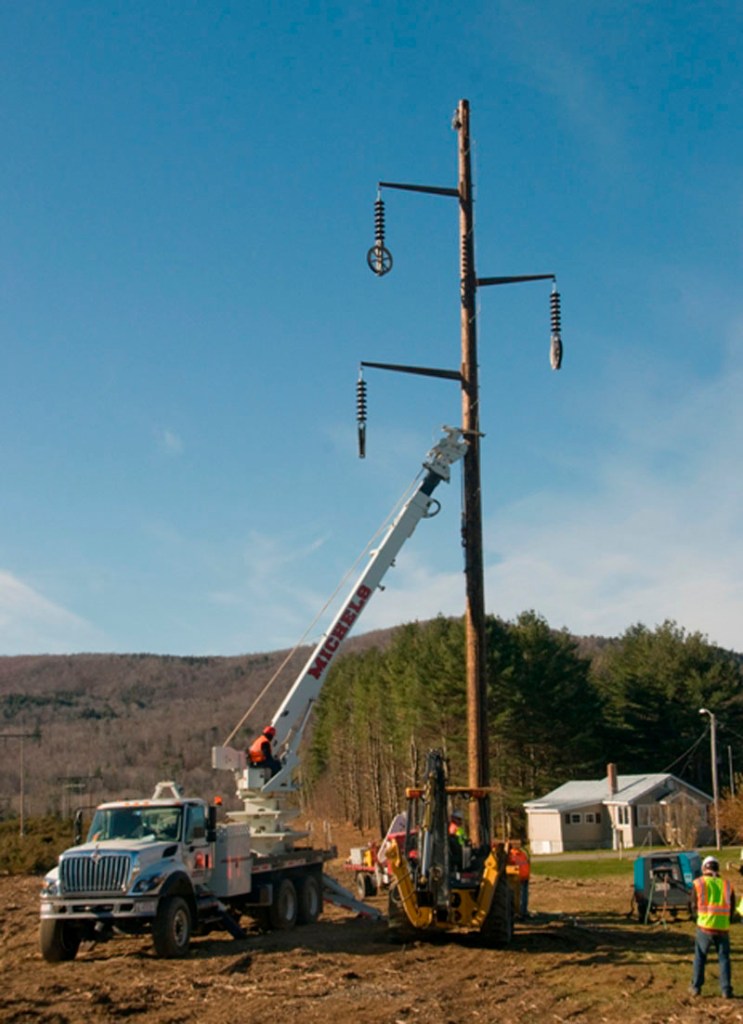AUGUSTA — Melissa Giroux of Chelsea is concerned that a high-voltage power line to be installed in front of her home could cause health problems, especially for her children.
She and others are asking lawmakers to require new lines to be set back at least 300 feet from homes and other areas.
“I’m writing to express my concern regarding the 115,000-volt line installed in the front yard of my Chelsea home and the 345,000-volt line that Central Maine Power (Co.) plans to install near the end of my driveway very soon,” she wrote in testimony submitted to lawmakers Tuesday. “I have an 11-year-old daughter and a teenage son. They also have cousins who visit here frequently and congregate in the front yard during the spring, summer and fall months.”
Rep. Deborah Sanderson, R-Chelsea, sponsored L.D. 950, “An Act to Establish the Electromagnetic Field Safety Act,” at the request of constituent Wanda Curtis. Curtis is a nurse and mother who is a freelance writer for the Kennebec Journal.
“No Maine child should be exposed to an increased risk of childhood leukemia when that can be prevented,” Curtis said, referring to a British study that found a greater risk correlation between the incidence of the disease and proximity to power lines.
The bill would require all new electric lines capable of carrying 5,000 volts or more to be placed at least 300 feet from homes, schools, hospitals, day care facilities, playgrounds, religious facilities and youth camps. Sanderson said she wanted Curtis to get the chance to discuss her concerns with members of the Legislature’s Energy, Utilities and Technology Committee.
“This is true, 100 percent constituent service for Wanda,” she said.
The bill is opposed by CMP, Public Advocate Richard Davies, Bangor Hydro Electric Co., and Dirigo Electric Cooperative. Opponents say the bill is not practical because the 5,000-volt threshold is too low, a change would cost ratepayers more money, and the science behind the health concerns is inconclusive.
“First, it has not been definitively proved that locations near power lines cause adverse health effects,” said written testimony provided by Debra Hart, who represents Dirigo Electric Cooperative. “Second, the requirement that the setback be 300 feet from a number of entities will cause future power lines to be sited based merely on setback requirements and not where they are needed or provide the best options for safe and reliable service.”
The committee will hold a work session on the bill in the coming weeks.
Susan Cover can be contacted at 621-5643 or at:
scover@mainetoday.com
Send questions/comments to the editors.


